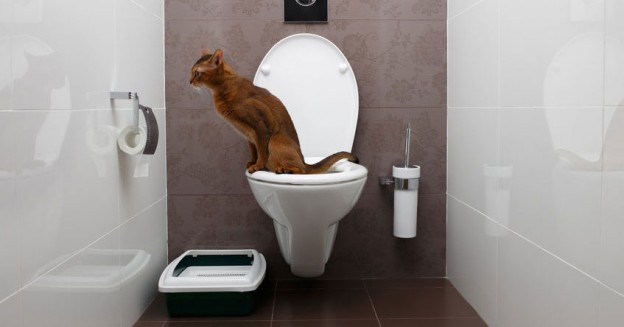Avoid Toilet Emergencies: Never Flush Cat Poop Down Your Toilet - Professional Advice
Avoid Toilet Emergencies: Never Flush Cat Poop Down Your Toilet - Professional Advice
Blog Article
We have discovered this post on Don’t flush cat feces down the toilet listed below on the internet and figured it made perfect sense to talk about it with you on my blog.

Introduction
As cat owners, it's important to bear in mind how we dispose of our feline buddies' waste. While it may appear convenient to flush cat poop down the toilet, this technique can have detrimental repercussions for both the setting and human health and wellness.
Alternatives to Flushing
Thankfully, there are safer and extra responsible ways to get rid of pet cat poop. Think about the complying with alternatives:
1. Scoop and Dispose in Trash
One of the most typical technique of taking care of cat poop is to scoop it right into a biodegradable bag and throw it in the trash. Be sure to use a dedicated clutter inside story and throw away the waste promptly.
2. Use Biodegradable Litter
Go with naturally degradable pet cat trash made from products such as corn or wheat. These litters are eco-friendly and can be safely taken care of in the trash.
3. Hide in the Yard
If you have a backyard, think about hiding feline waste in an assigned location away from vegetable gardens and water resources. Make sure to dig deep enough to stop contamination of groundwater.
4. Set Up a Pet Waste Disposal System
Invest in an animal waste disposal system particularly made for cat waste. These systems use enzymes to break down the waste, lowering odor and ecological effect.
Wellness Risks
In addition to environmental issues, purging pet cat waste can also position wellness dangers to humans. Cat feces may consist of Toxoplasma gondii, a parasite that can create toxoplasmosis-- a potentially serious ailment, specifically for pregnant females and individuals with weakened body immune systems.
Ecological Impact
Purging pet cat poop presents harmful virus and parasites into the water system, posturing a considerable risk to water environments. These pollutants can negatively affect aquatic life and concession water high quality.
Verdict
Responsible pet possession prolongs past supplying food and shelter-- it additionally entails proper waste administration. By refraining from flushing pet cat poop down the toilet and going with alternate disposal techniques, we can minimize our ecological impact and protect human health.
Why You Should Never Flush Cat Poop Down the Toilet
A rose by any other name might smell as sweet, but not all poop is created equal. Toilets, and our sewage systems, are designed for human excrement, not animal waste. It might seem like it couldn’t hurt to toss cat feces into the loo, but it’s not a good idea to flush cat poop in the toilet.
First and foremost, assuming your cat uses a litter box, any waste is going to have litter on it. And even the smallest amount of litter can wreak havoc on plumbing.
Over time, small amounts build up, filling up your septic system. Most litter sold today is clumping; it is made from a type of clay that hardens when it gets wet. Ever tried to scrape old clumps from the bottom of a litter box? You know just how cement-hard it can get!
Now imagine just a small clump of that stuck in your pipes. A simple de-clogger like Drano isn’t going to cut it. And that means it’s going to cost you big time to fix it.
Parasitic Contamination
Believe it or not, your healthy kitty may be harboring a nasty parasite. Only cats excrete Toxoplasma in their feces. Yet it rarely causes serious health issues in the cats that are infected. Most people will be fine too if infected. Only pregnant women and people with compromised immune systems are at risk. (If you’ve ever heard how women who are expecting are excused from litter cleaning duty, Toxoplasma is why.)
But other animals may have a problem if infected with the parasite. And human water treatment systems aren’t designed to handle it. As a result, the systems don’t remove the parasite before discharging wastewater into local waterways. Fish, shellfish, and other marine life — otters in particular — are susceptible to toxoplasma. If exposed, most will end up with brain damage and many will die.
Depending on the species of fish, they may end up on someone’s fish hook and, ultimately on someone’s dinner plate. If that someone has a chronic illness, they’re at risk.
Skip the Toilet Training
We know there are folks out there who like to toilet train their cats. And we give them props, it takes a lot of work. But thanks to the toxoplasma, it’s not a good idea.

We had been made aware of that write-up about How to Dispose of Cat Poop and Litter Without Plastic Bags through a good friend on our other site. Sharing is caring. Helping people is fun. Thanks a lot for your time. Kindly stop by our site back soon.
Call Today Report this page